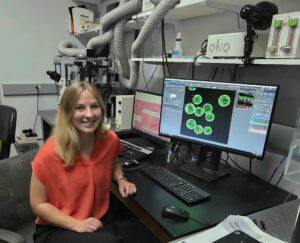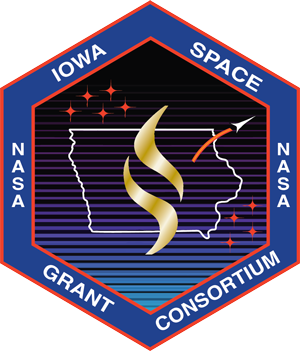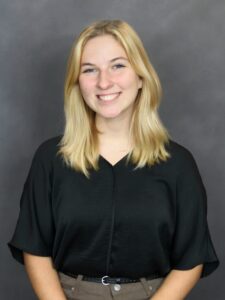Spaceflight-associated neuro-ocular syndrome (SANS) is a major health concern for individuals who spend extended periods of time in low Earth orbit, particularly long-duration astronauts. This condition is characterized by increased intracranial pressure, retina structural changes, and visual impairment. Exposure to microgravity has been identified as a primary risk factor, yet the underlying cellular mechanisms are not fully understood. Microgravity is known to disrupt the biomechanical signaling in many human cell types, and comparable disruptions are associated with pathological changes in retinal pigmented epithelial (RPE) and potentially choroidal vascular endothelial (ChEC) cells in other ocular diseases.
We aim to characterize the impact of simulated microgravity on the gene expression of RPE and ChEC cells and investigate the role of mechanotransduction signaling in this response. Using cells cultured on microcarrier beads suspended within a rotating bioreactor, we simulate microgravity by balancing sedimentation and centrifugal forces. We will evaluate cells for changes in gene expression, viability, and function compared to Earth gravity. We can also assess the effects of introducing small-molecule inhibitors known to disrupt mechanotransduction, such as Rho Kinase Inhibitors, which have demonstrated therapeutic uses in ophthalmology.
 This project aligns with the NASA Mission Directorates by addressing a physiological risk that affects human safety and performance during spaceflight. Space exploration is an important endeavor, but it can only be sustained if we uphold the health and safety of astronauts. By advancing our understanding of cellular responses to microgravity, this research will provide insight into countermeasures that support astronaut health and performance.
This project aligns with the NASA Mission Directorates by addressing a physiological risk that affects human safety and performance during spaceflight. Space exploration is an important endeavor, but it can only be sustained if we uphold the health and safety of astronauts. By advancing our understanding of cellular responses to microgravity, this research will provide insight into countermeasures that support astronaut health and performance.

